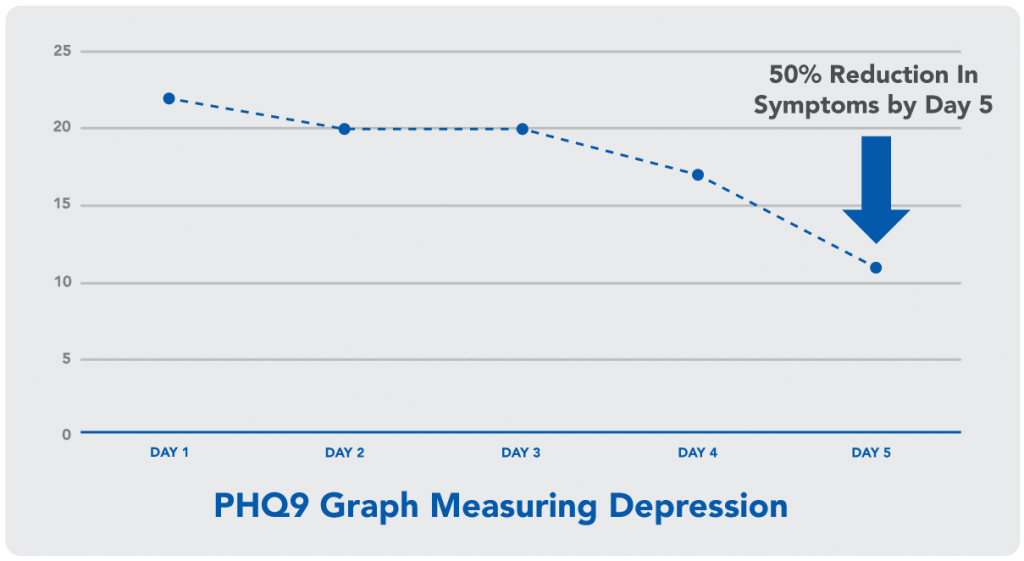What is Intensive TMS?
Intensive TMS is an innovative treatment that optimizes stimulation by delivering multiple Theta Burst treatments throughout the day, significantly shortening the treatment plan from several weeks to one week. Intensive TMS for Depression targets the same part of the brain as other depression protocols with a Figure 8 coil attached to a Magstim machine, focalizing the treatment by using the newly added StimGuide neuronavigation system to increase accuracy. The Intensive TMS treatment package is based off a clinical study at Stanford University where about 90% of participants achieved remission and all had a resolution of Suicidal Ideation (SI) by the end of the week. This rapid protocol requires the participant to receive 10 Theta Burst (iTBS) treatments, with 1 hours breaks in-between, for 5 days, reaching remission after one week.

Intensive TMS is a Great Option for Treatment-Resistant Depression or Non-Responders
Treatment-Resistant Depression (TRD) is defined as those who have failed multiple antidepressants and therapies to treat their depression. Intensive TMS can be used to treat TRD or those who have even failed highly effective treatments such as other TMS protocols and Ketamine therapy. A patient who previously failed IV Ketamine and deep TMS and continued to have suicidal ideation responded after receiving 50 Theta-Burst sessions over five days. The patient reported a 50% reduction in depressive symptoms, scoring half lower in their PHQ9 score, and denied experiencing any suicidal thoughts. Intensive TMS optimizes neural connectivity by spacing out each treatment in 60 minute intervals to strengthen synapses and promote neuroplasticity.

By the 3rd day of receiving intensive treatments, most participants notice a significant improvement in mood and motivation. This rapid protocol is an efficacious and innovative approach to treat Treatment-Resistant Depression and eliminate suicidal ideation in 5 days for non-responders. The Intensive TMS treatment course is also recommended for those who cannot commit to receiving deep TMS over several weeks but are able to take off for a week to receive treatment for their depression.


Explore Our Other TMS Treatments:
Schedule a Consultation to Learn More
CONTACT US
Sandhya Prashad, M.D.
Dr. Prashad has extensive experience with treatment-resistant depression and is one of the most experienced ketamine psychiatrists in the country.
6565 West Loop South, #530
info@sprashadmd.com
Call: 832-436-4055


